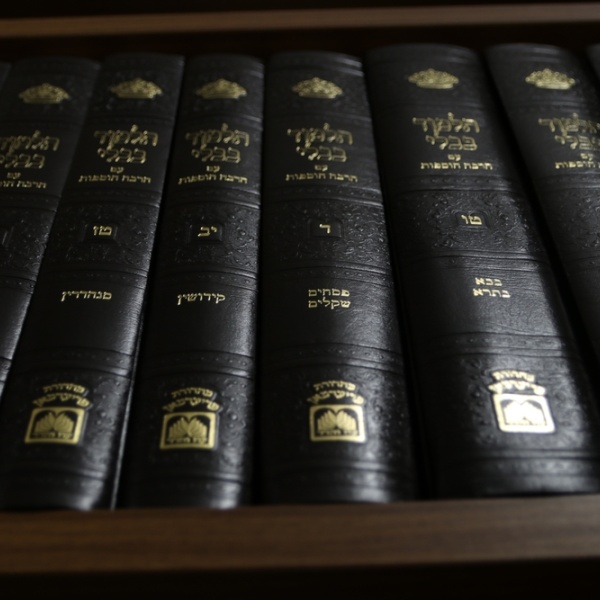
“Reish Lakish said: Whomever has a beit knesset in his city and he does not enter it, he is called a bad neighbour” (Brachot 8a). All too often today, people do not even know their neighbours, let alone visit them. Such is the sad reality in today’s impersonal world that one can live with hundreds of people in the same apartment building and yet be extremely lonely. Hearing a friendly knock on the door can be a great contributor to our well-being. G-d is, kveyachol, no different. He too likes visitors to His home: “for My house is the house of prayer” (Yishayahu 56:7). Those who do not visit – whether for prayer or just to say hello - are not doing their part in ensuring good neighbourly relations.
Most of us have many - perhaps too many[1] - opportunities to be a good neighbour to our local shul(s). But when Reish Lakish spoke, having a shul in the neighborhood was a luxury few had. In Talmudic times places of prayer – it would be a stretch to call many of them shuls - were generally located outside the city limits. It is for this reason that the Sages established the recital of baruch Hashem leolam amen vamen at Maariv. As it was unsafe to be alone in the fields at night extra prayers were added, giving latecomers an opportunity to catch up, skip the extra prayers, and come back home with others. For Reish Lakish, being blessed with a shul in one’s city is a reason for great rejoicing and not taking advantage of such is the sign of a bad neighbour.
With most people having to leave town to go to shul – and for many farmers the nearest shul was miles away, such that they could attend only on market days when they brought their wares to town – it is little wonder that that Rav explained the verse “blessed are you in the city” (Devarim 28:3) as referring to those “whose house is next to a shul” (Bava Metzia 107a).
Yet Rav Yochanan claims there is an even greater blessing and interprets the verse to be referring to one “who has a bathroom next to his home.” Not only were shuls located outside the city limits, so too were places to relieve oneself. It may be difficult for us to fully relate to, but it takes very little relating to realize that few and far between are those who would disagree with Rav Yochanan. Few are those today who would consider themselves blessed if the nearest bathroom was “next” to their home[2].
Yet regardless of where the nearest bathroom may be situated, Rav Yochanan is of the view that it’s best that the shul not be so close to home. “There is a reward for the number of steps” one takes on his way to shul. Like anything meaningful in life, preparation is required and taking the time to walk a nice distance to shul is part and parcel of going to visit our Divine neighbour.
Rav and Rav Yochanan also differ in their explanation of the remainder of the verse. Rav understands “blessed are you in the field” as a prayer “that your property should be near the city”, meaning that the verse blesses us that both our spiritual and material needs be nearby. Rav Yochanan is less concerned with location than with diversification. Having all of one’s eggs in a single basket is a risky proposition. Blessed are those, teaches Rav Yochanan, “whose property is one third in wheat, one third in olives and one third in grapes.” This way, if there is no yield from one or even two of the crops planted, one still has a source of income.
“Blessed are you when you arrive” (Devarim 28:6) the Torah continues, which Rav interprets as meaning “that you shall not find your wife in doubt as to whether she is a nidah when you return from travel.” Especially considering how long it took to travel in the ancient world, one on his way home would look forward to being intimate with his wife. It is noteworthy that the bracha, Rav says, is that one’s wife not be a safek nidah, a doubtful nidah. It may be frustrating to return home and find that one’s wife is a nidah. But such is the discipline that halacha demands and that the G-d fearing Jew accepts. But a safek nidah where the woman may actually be permitted to her husband, but due to an unresolved doubt they must remain apart, is doubly frustrating.
“And blessed are you when you leave” the verse concludes which Rav sees as a blessing that our children should follow in our footsteps. It is hard to argue with that.
While it is difficult to imagine that Rav Yochanan would disagree, such in his view is not the meaning of the verse. Rather, he reads the phrase “blessed are you when you arrive, blessed are when you leave” as one blessing. “The same way your entrance to this world is without sin, so too your exit from this world shall be without sin.” Fortunate is the one who has the opportunity, and takes advantage of that opportunity, to do teshuva before they die.
[1] The simple meaning of this teaching is that one must visit all synagogues in the neighborhood. He does not teach that there is a mitzva to visit a shul; rather that when in the neighborhood of a shul, one pay a visit. This can be a most difficult task in some neighborhoods with many – often too many - shuls.
[2] This is just another example how wealth is relative. In many respects the poorest 10% of people in the Western world live far more luxurious lives that much of the nobility of the Middle Ages.
